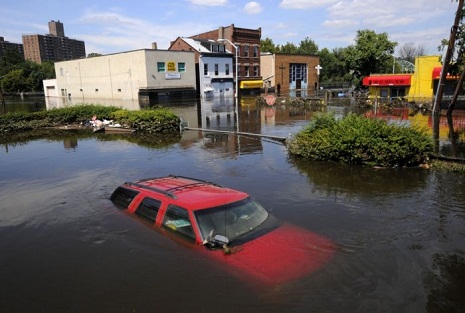If the oceans continue to rise, scientists warn, some US and Canadian cities including New York and Halifax will need to prepare themselves for "extreme sea level events."
The results of the study, by scientists from the University of Arizona and National Oceanic and Atmospheric Administration (NOAA) in New Jersey, were published in Nature Communications.
Professor Jianjun Yin of the University of Arizona said the rise was surprising - as was the length of time the sea levels remained high.
"The extreme sea level rise event during 2009-10 along the northeast coast of North America is unprecedented during the past century," he told BBC News. "Statistical analysis indicates that it is a 1-in-850 year event."
The scientists found the spike was due to a weakening of the Atlantic Meridional Overturning Circulation (AMOC), which usually pushes warm water towards the Arctic and cooler water down the US eastern coast.
If the current continues to weaken, it could have a major impact on weather in the UK, which could become wetter and warmer. Coastal areas in the US will also be affected by the continuing rise in sea levels, Professor Yin said.
"When coastal storms occur, extreme sea levels can lead to elevated storm surge. In addition to long-term and gradual sea level rise, coastal communities will need to prepare for short and extreme sea level rise events."
Even New York City could be badly affected, with one recent report claiming that by 2100 7% of the city could be permanently underwater.
More about:
















































